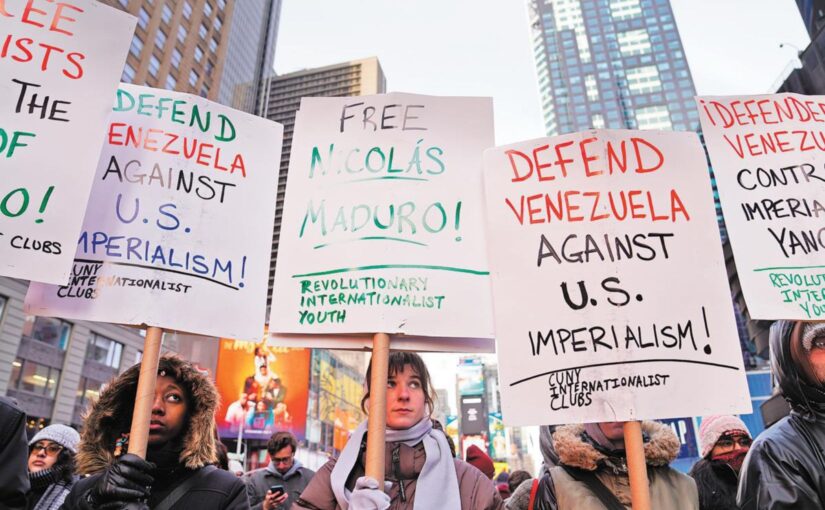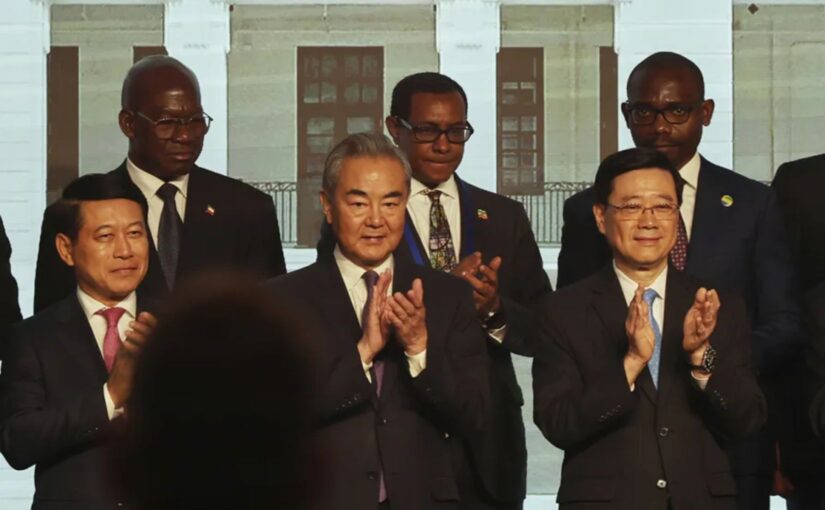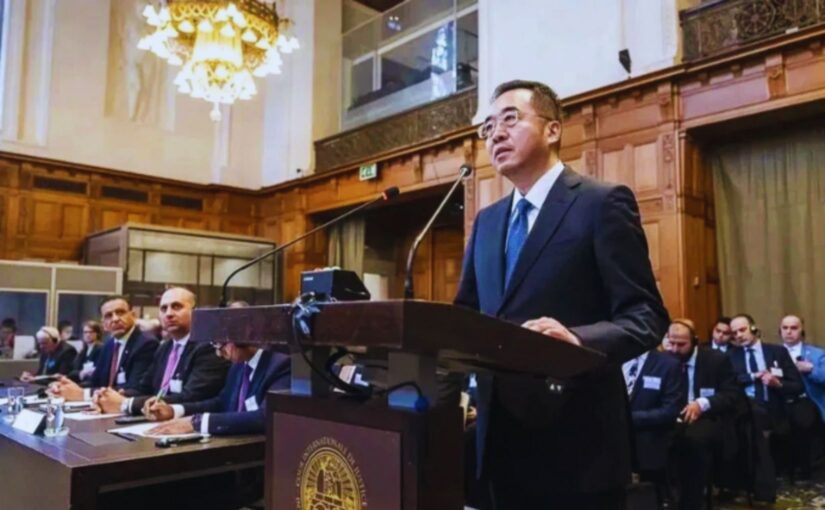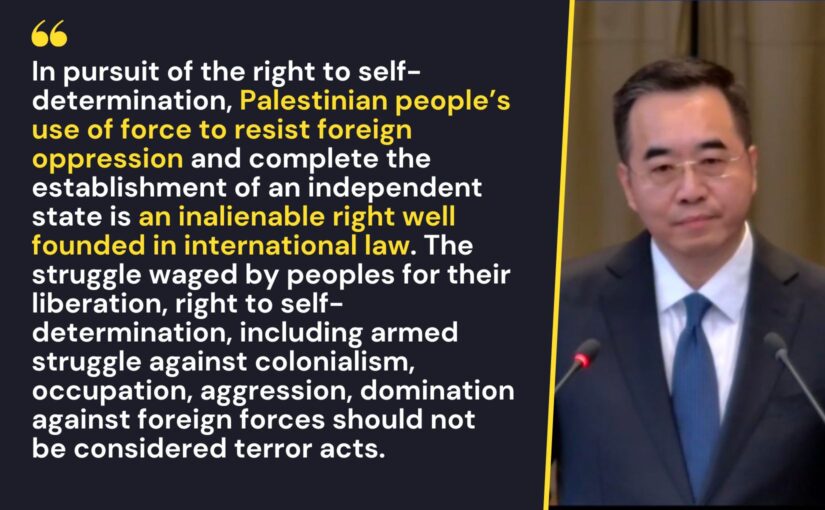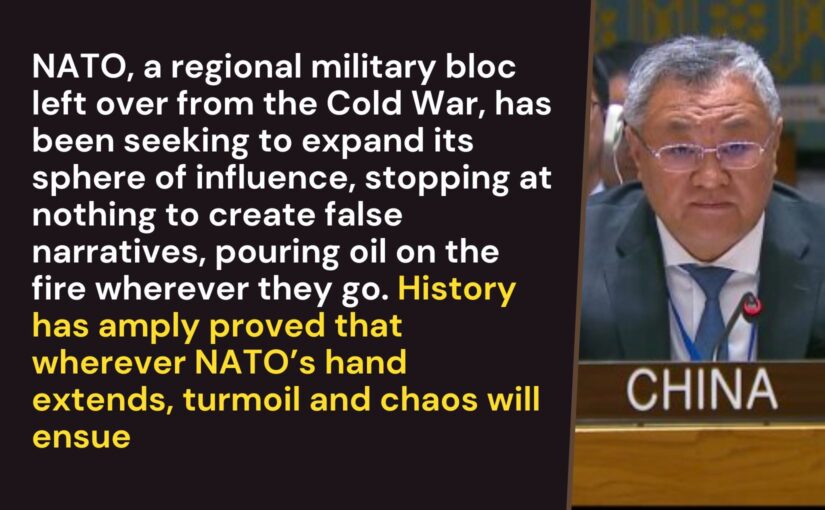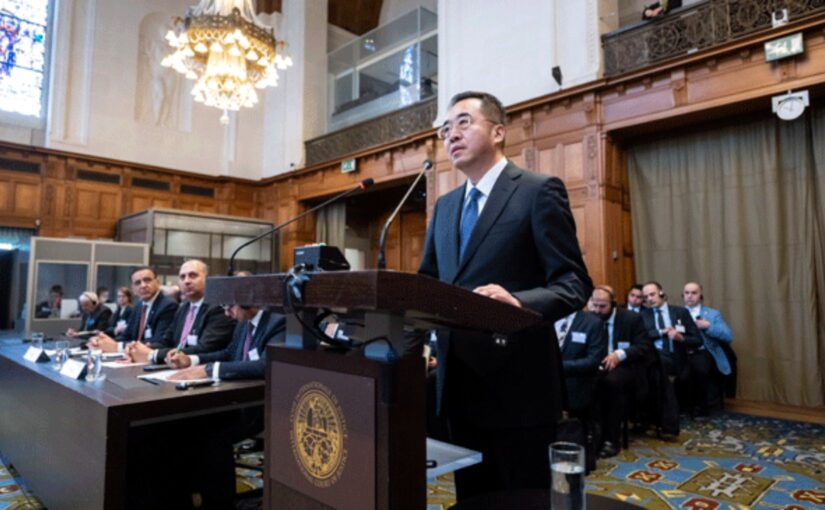China has told the International Court of Justice (ICJ) that the humanitarian crisis in Gaza and the occupied Palestinian territory has reached “unprecedented” levels and called on the court to uphold international law and international justice.
Addressing week-long public hearings recently held by the court to assess Israel’s legal obligations for the provision of humanitarian aid and the Palestinian people’s right to self-determination, Chinese representative Ma Xinmin said:
“The situation grows more desperate. In Gaza and throughout the occupied territories, we are witnessing an unprecedented humanitarian crisis threatening to overwhelm an already suffering people.”
He stressed that Israel has a clear legal obligation to accept humanitarian assistance from third parties when the population is inadequately supplied: “This is not a discretionary choice. Refusing such assistance could constitute a denial of humane treatment of civilians or a form of collective punishment, both prohibited under international law.”
Despite the advisory opinion issued by the court last year, he emphasised: “Occupation continues and starvation persists.
“The desperate eyes of Gaza children pierce our conscience with two burning questions: Will international law surrender to brute force? Will the pillars of civilisation yield before the law of the jungle?”
The following article was originally published by Palestine Chronicle.
China told the International Court of Justice (ICJ) on Friday that the humanitarian crisis in Gaza and the occupied Palestinian territory has reached “unprecedented” levels, and called on the court to uphold international law and international justice, the Anadolu news agency reported.
“The situation grows more desperate. In Gaza and throughout the occupied territories, we are witnessing an unprecedented humanitarian crisis threatening to overwhelm an already suffering people,” said Ma Xinmin, representing China.
He stressed that Israel has a clear legal obligation to accept humanitarian assistance from third parties when the population is inadequately supplied.
“This is not a discretionary choice. Refusing such assistance could constitute a denial of humane treatment of civilians or a form of collective punishment, both prohibited under international law,” he said.
The week-long public hearings began on Monday to assess Israel’s legal obligations for the provision of humanitarian aid and the Palestinian people’s right to self-determination, following a request from the UN General Assembly.
Aid Workers
Beijing also expressed deep concern over casualties among humanitarian workers in the occupied Palestinian territory, stressing that Israel must ensure the privileges and immunities of UN agencies and bodies.
China reaffirms, the representative said, that the UN should play a “central and unique role” in leading and coordinating humanitarian assistance and called on all states to cooperate to provide relief to the Palestinian people. He reiterated that the fundamental solution lies in implementing a two-state solution.
Despite the advisory opinion of the court last year, he emphasized, “Occupation continues and starvation persists.”
“The desperate eyes of Gaza children pierce our conscience with two burning questions: Will international law surrender to brute force? Will the pillars of civilization yield before the law of the jungle?” he asked.
China also urged the court to issue an advisory opinion that would uphold the integrity of international law and “stir the conscience of the international community” to safeguard fairness, justice, and the rule of law.
Blockade ‘Unacceptable’ – UK
On Thursday, the United Kingdom told the ICJ that Israel must lift its restrictions on humanitarian assistance to Gaza, ensure civilian protection, and fully comply with international humanitarian law, Anadolu reported.
“It is unacceptable that Israel has blocked humanitarian support from entering Gaza for nearly two months, meaning that Palestinian civilians, including one million children, are facing starvation, disease, and death,” said UK representative Sally Langrish, recalling the UK Foreign Office Minister David Lammy’s recent statement to the UN Security Council in which he urged a return to the ceasefire “to end the relentless death and destruction that Palestinians face daily.”
Langrish emphasized the UK’s consistent call on Israel to allow humanitarian access and noted the UK’s suspension of certain arms export licenses to Israel in September 2024, citing “the clear risk that certain military exports to Israel might be used in violation of international humanitarian law.”
UNRWA an ‘Impartial’ Body
Michael Wood, also speaking for the UK, underlined Israel’s obligations under the UN Charter, the 1946 Convention on the Privileges and Immunities of the UN, and international humanitarian law. He said Israel must respect the legal capacities, privileges, and immunities of the UN and its agencies, including UNRWA.
Langrish explained that under Article 59 of the Fourth Geneva Convention, Israel must agree to and facilitate relief efforts when the population is undersupplied. Refusing would be a violation of international law, she said.
She affirmed that the UK regards UNRWA as an “impartial humanitarian organization” and supports its mandate, while stressing the need for the agency to uphold strict neutrality and investigate any allegations of misconduct, noting that such investigations are already underway.
US Defends Israel
The US has stood nearly alone in defending Israel’s restrictions on UNRWA at the hearings.
Josh Simmons, of the US State Department legal team, argued that Israel “has ample grounds to question UNRWA’s impartiality.”
He cited Israel’s allegations that Hamas “has used UNRWA facilities and that UNRWA staff participated in the 7 October terrorist attack against Israel.”
“In sum, there is no legal requirement that an occupying power permit a specific third state or international organization to conduct activities in occupied territory that would compromise its security interests,” he stated.
Simmons said the US supports the flow of humanitarian aid into Gaza, “with the safeguards to ensure it is not looted or misused by terrorist groups.”
Rising Death Toll
Representatives from 40 countries and four international organizations are presenting oral submissions during the proceedings, including Türkiye, Malaysia, South Africa, China, Russia, Spain, Ireland, Brazil, Qatar, Saudi Arabia, and Egypt.
Key organizations, including the UN, the Organization of Islamic Cooperation, and the Arab League, will also contribute.
Israel, which is among the countries that submitted written statements, will not make an oral submission during the hearings.
Israel also faces a genocide case at the ICJ for its war on the Gaza Strip, which, since October 2023, has killed more than 52,000 Palestinians and reduced much of Gaza to rubble.
The International Criminal Court issued arrest warrants last November for Netanyahu and his former Defense Minister, Yoav Gallant, for war crimes and crimes against humanity in Gaza.
